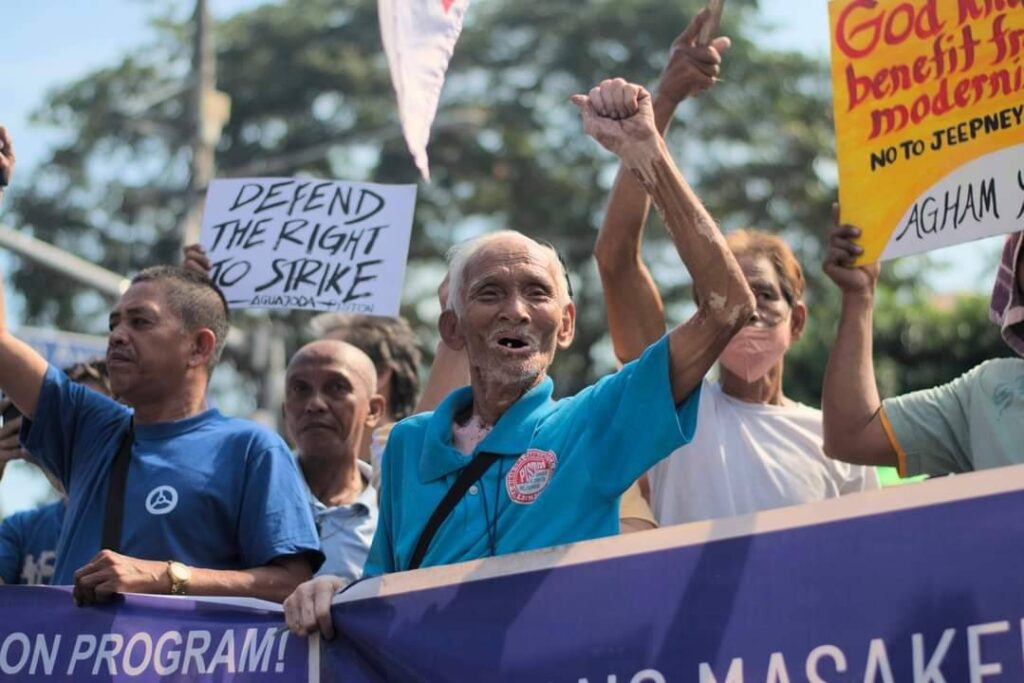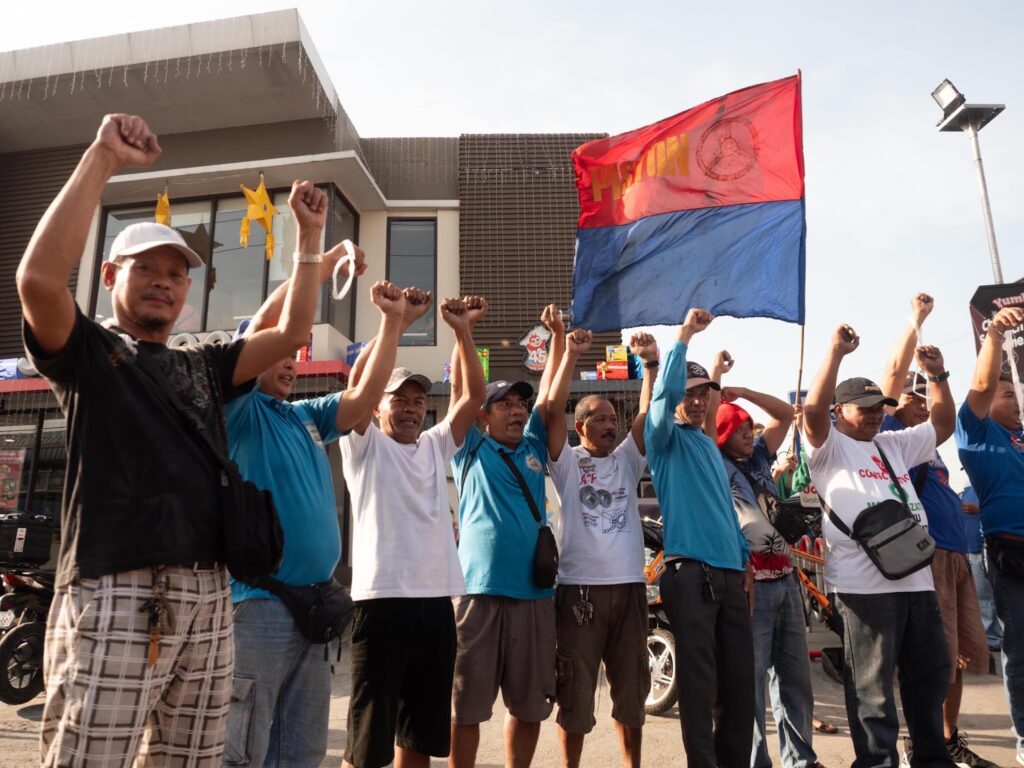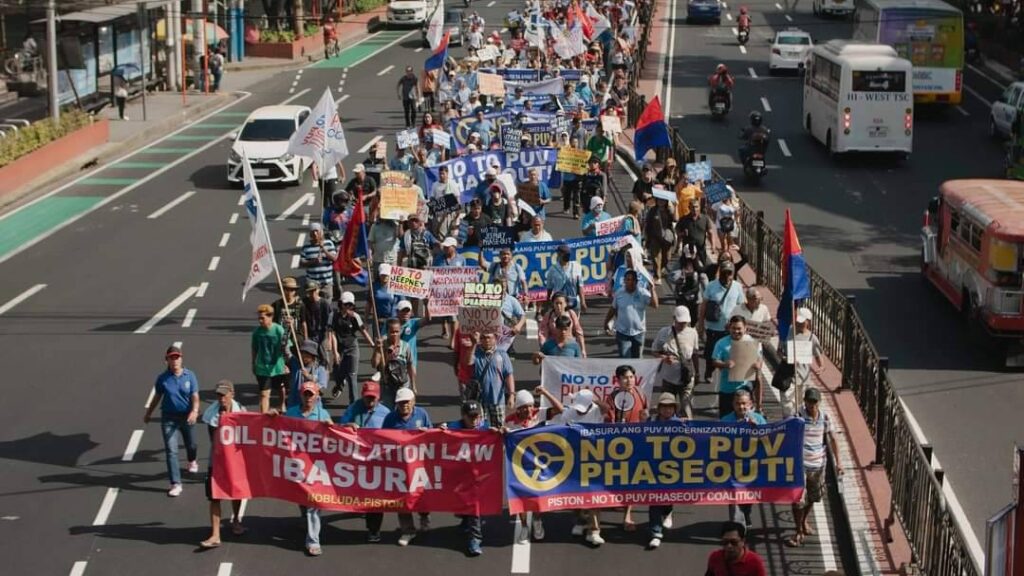
PISTON launched a nationwide transport strike on November 20 to 22 to protest the ongoing implementation of the Public Utility Vehicle Modernization Program (PUVMP). The strike came ahead of the December 31 deadline for the application for franchise consolidation.
THE ISSUES
Under the franchise consolidation requirement of the PUVMP, jeepney operators are being forced to surrender their individual franchises to be consolidated into a single franchise per cooperative or corporation. The Land Transportation Franchising and Regulatory Board (LTFRB) will grant these single consolidated franchises based on the principle of “least possible number of operators” per route that may result in the monopoly of a few big fleet managers or corporations who have the necessary financial capacity to comply with the hefty capital needed to “modernize” and control public utility vehicle (PUV) routes, thus concentrating market control in the hands of a few corporate entities.
THE STRIKE

The strike started at 12 midnight on November 20 and lasted for three days, although many local associations decided to extend their strikes for two more days up to November 24. It involved thousands of transport workers and supporters from Metro Manila and other regions across the country.
The strikers set up 17 strike centers along various major routes in Metro Manila, which served as venues for picket protests, educational discussions, cultural activities, gatherings for supporters, and other activities. Similar protests and picket lines were also held in other regions, particularly in the Southern Tagalog Region, Bicol Region, Western Visayas Region, and Central Visayas Region. Protests were also held in solidarity and as part of the nationwide strike in Baguio City in northern Philippines and in Davao City in southern Philippines.

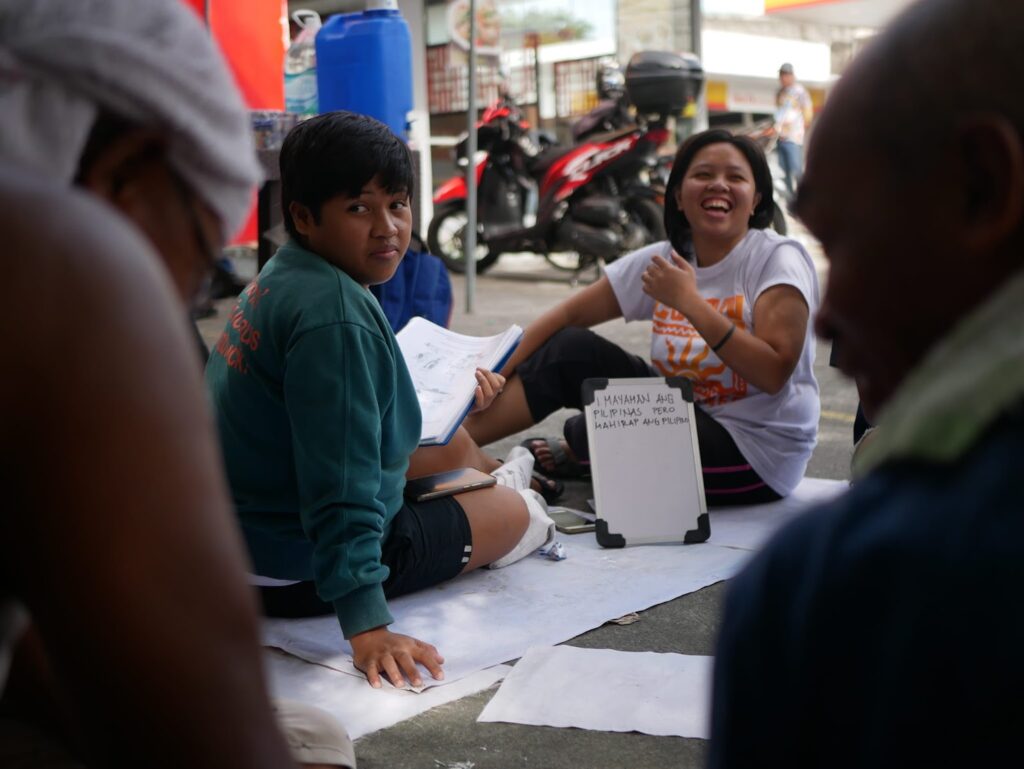
THE DEMANDS
The strikers issued a set of urgent demands, including:
- Junk the December 31 deadline for franchise consolidation
- Junk the franchise consolidation requirement
- Repeal the entire PUVMP
For the long-term, the strike has demanded for a pro-people, worker-led just transition towards a genuinely sustainable mass public transport anchored on national industrialization instead of overly depending on importation of vehicles.
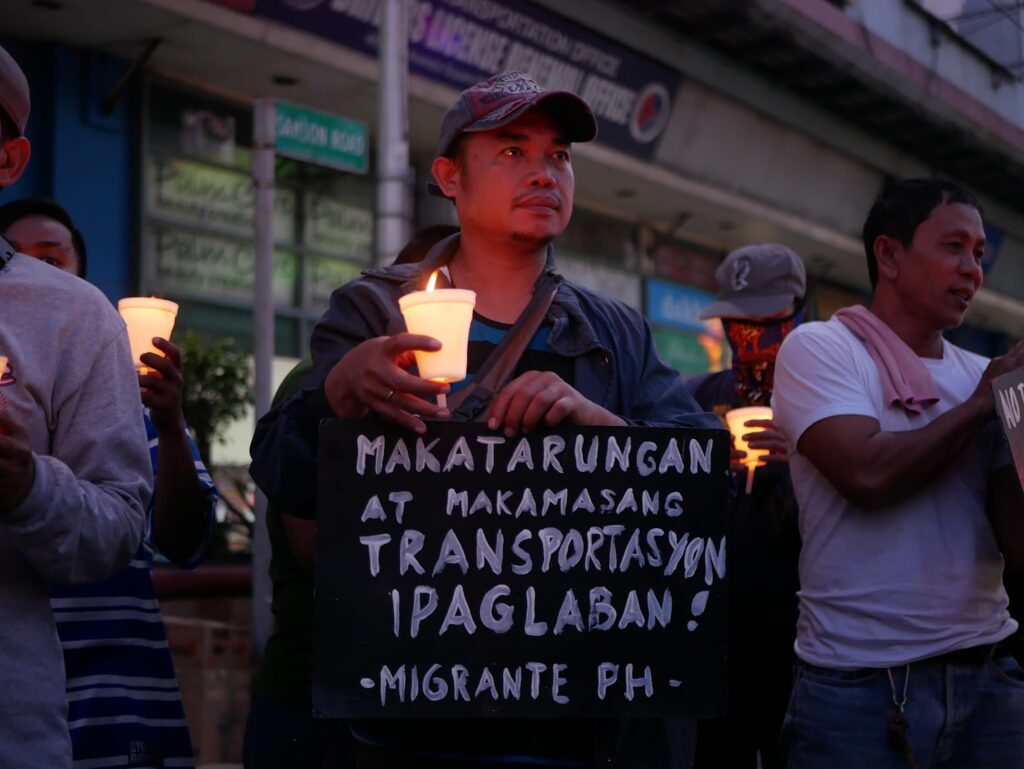
THE GOVERNMENT’S RESPONSE
The impressive turnout at the strike centers and the overwhelming public sympathy compelled the LTFRB to talk to PISTON National President Mody Floranda and to some of the strikers at one of the picket lines on the first day of the strike. The LTFRB failed to concretely respond to the strike’s demands, which further fueled the workers to continue the strike for two more days.
On November 22, the third day of the strike, more than a thousand transport workers and supporters marched to Mendiola, Manila which is a few meters from the Philippine Presidential Palace, to culminate the three-day strike and to directly demand the Philippine President Ferdinand Marcos Jr to immediately act on the demands of the strike.
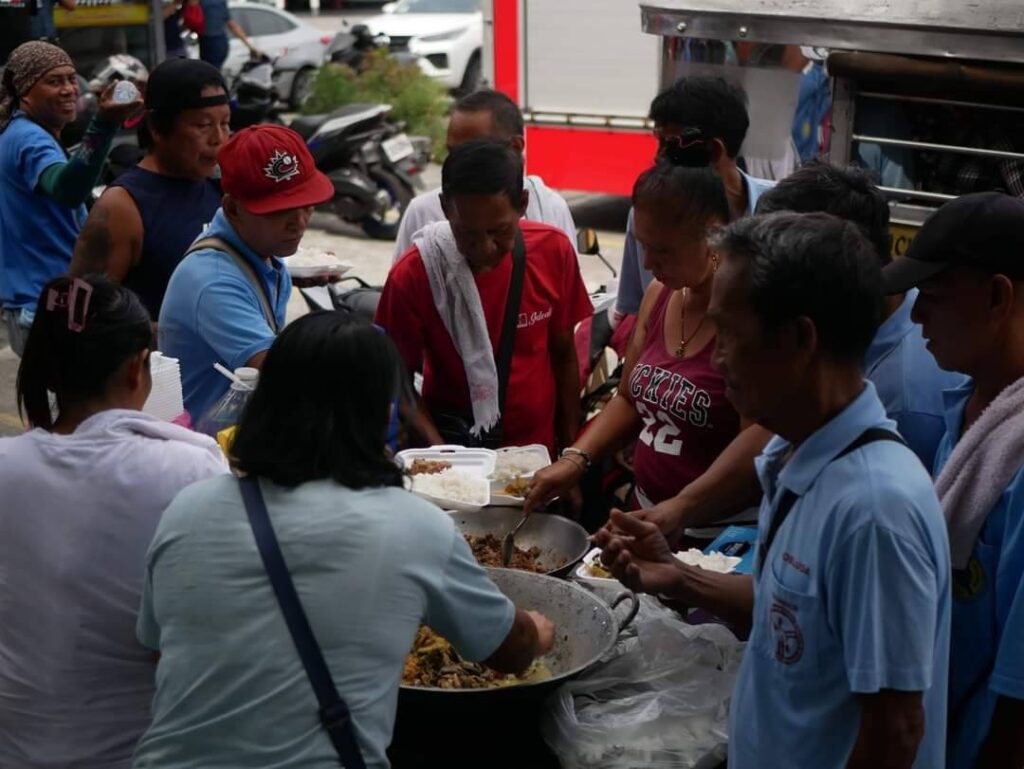
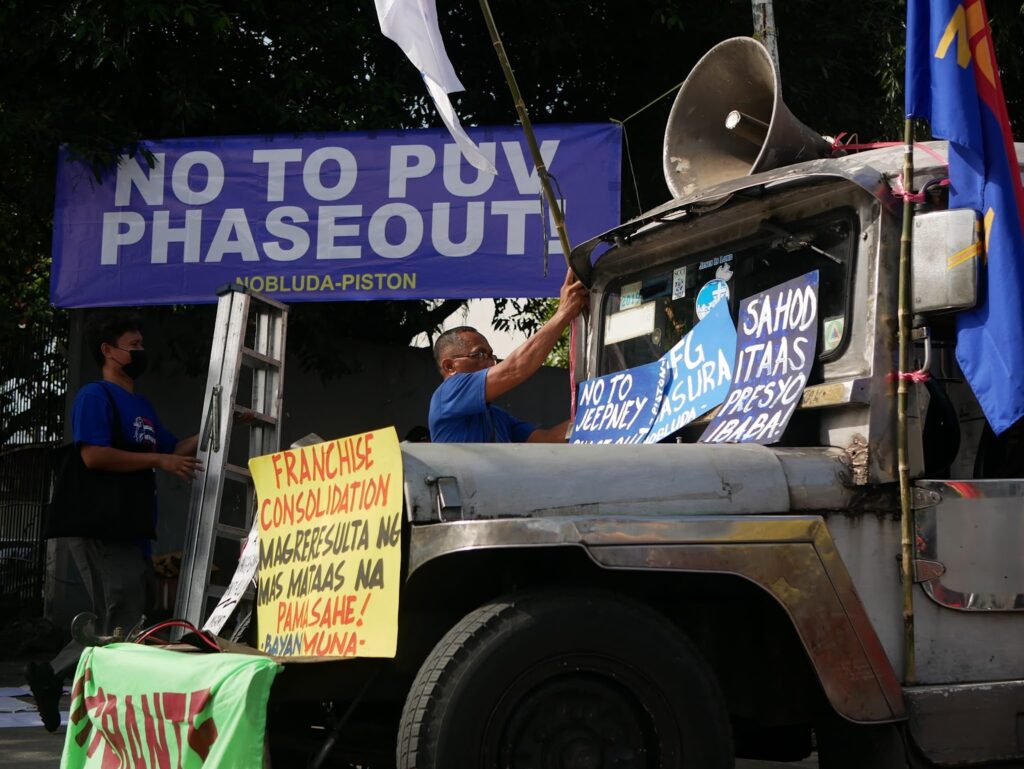
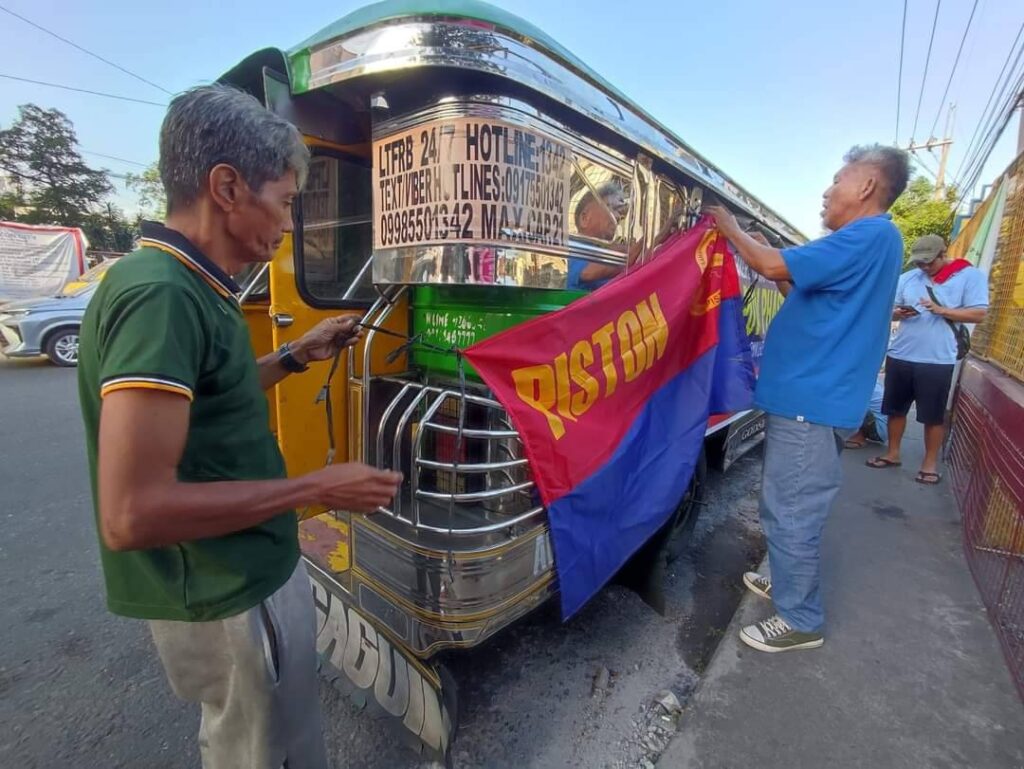
THE STRIKE’S IMPACT
The strike resulted in around 90% paralysis on major routes in Metro Manila. In the Southern Tagalog Region, the strike was held in three provinces which resulted in around 60-90% paralysis. In the Bicol Region, the province of Albay recorded a 100% paralysis at the peak of the strike. In the Western Visayas Region, 100% of all traditional jeepneys joined the strike, and around 60% of modern jeepneys. Meanwhile, the Central Visayas Region reported a 60% paralysis during the strike.
A significant breakthrough of the transport strike was the participation of local associations and cooperatives that had already adhered to the PUVMP and its franchise consolidation requirement. Driven by the strike’s momentum and the realization of their own struggles under the program, these groups reached out to PISTON and publicly denounced the hardships they were facing.
This shift in stance from initial compliance to open resistance underscored the widespread discontent with the PUVMP’s implementation. It also amplified the strike’s message, highlighting that the program’s negative impacts extended beyond those who had yet to comply.
The involvement of local associations and cooperatives added a new dimension to the strike, broadening its base of support and further legitimizing its demands. It also serves as a stark reminder that even those who had initially embraced the program are now grappling with its shortcomings.
This pivotal moment in the strike not only strengthened the movement but also sent a clear message to the government: the PUVMP, in its current form, is not a solution for the public transportation sector. A more inclusive and equitable approach is urgently needed to address the challenges faced by transport workers and ensure a sustainable and just transition for public transportation.
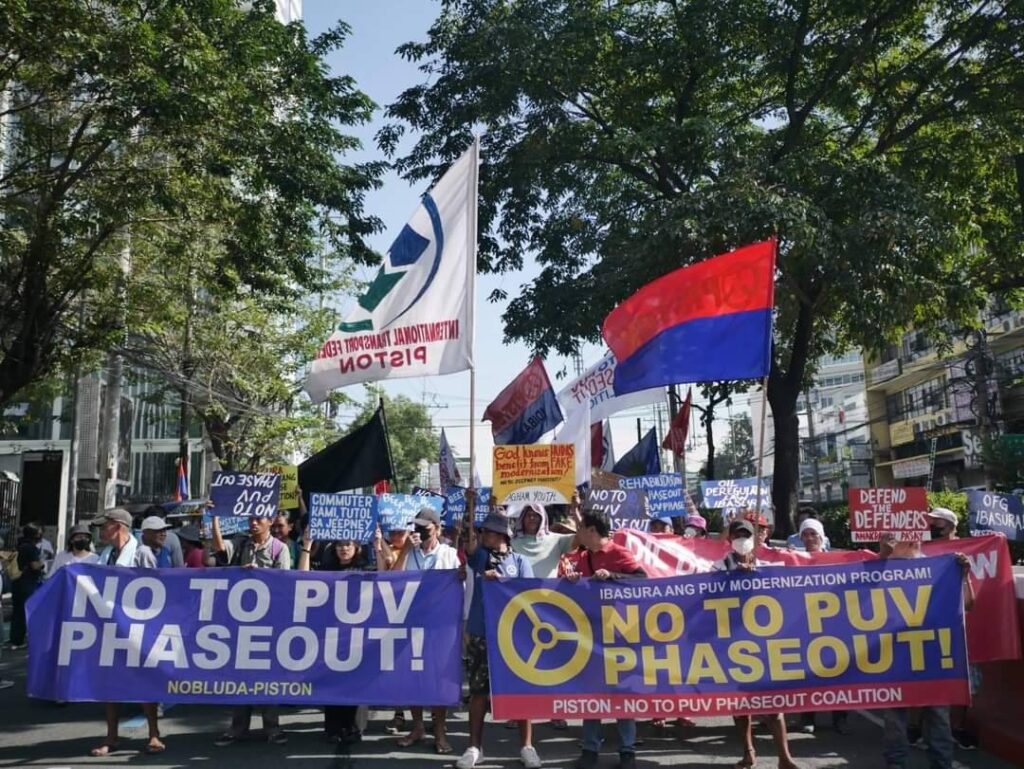

MOVING FORWARD
Undeterred by the initial obstacles, PISTON remains steadfast in its pursuit of a just and equitable public transportation system. Transport workers have pledged to continue our protests and launch a series of strategic actions until our demands for a pro-people, worker-led just transition in public transport are met.
Recognizing the power of legislative support, PISTON has initiated discussions with allied legislators in the Philippine Congress to explore potential legislative actions that align with our demands. These ongoing dialogues aim to garner congressional support for policies that empower transport workers and promote a more equitable public transportation program.
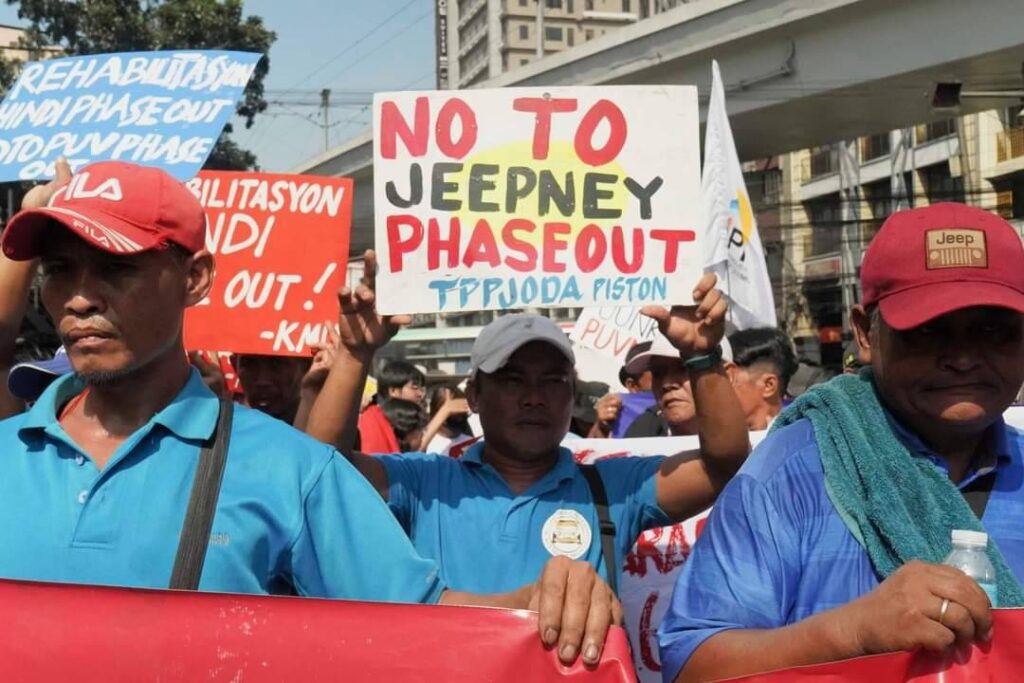
CONCLUSION
The strike has underscored the deep-seated concerns about the PUVMP and the need for a more equitable and inclusive approach to public transportation modernization. The strike, which involved thousands of transport workers and supporters, highlighted the perceived inequities and exclusionary nature of the PUVMP, and the need for a pro-people, worker-led just transition towards a genuinely sustainable public transport.
Despite the December 31 deadline still looming, transport workers and the public are even more determined to continue fighting back and struggling for significant change.
